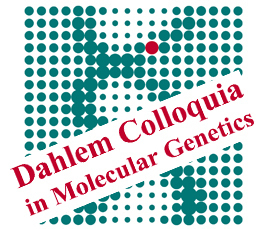Romain Koszul: Regulation of chromosome compaction by cohesin in budding yeast
- Date: Nov 8, 2019
- Time: 11:00 AM - 12:00 PM (Local Time Germany)
- Speaker: Romain Koszul
- Institute Pasteur, Paris
- Location: Seminar Room SI, Tower 3
- Host: Daniel Ibrahim, Research Group Mundlos, Development and Disease

As part of the GP write consortium, Romain Koszul is involved in rewriting the yeast (and other genomes). His lab engineers synthetic chromosomes and develops software to analyse 3D chromatin structure or to use Hi-C for genome assembly. With wet lab and computation, it’s fun for everyone!
ABSTRACT
Cohesin-dependent regulation of chromosome folding during yeast meiotic and mitotic prophase
Cohesin, a member of the structural maintenance of chromosomes (SMC) complex family, holds sister chromatids together post-replication. It also shapes chromosomes by promoting the formation of long-range intra-chromatid DNA loops, a process proposed to be mediated by DNA loop extrusion. Cohesin-mediated DNA loops are important for both compartmentalization of chromosomes into interacting domains during mammalian interphase, but also, as recently shown, for higher-order mitotic chromatin compaction in budding yeast. I will present here some of our recent and ongoing work on the formation and regulation of cohesin-dependant loops along mitotic and meiotic Saccharomyces cerevisiae chromosomes.
More specifically, we showed that these chromosomes are organized into arrays of loops in both mitosis and meiosis. We characterize the roles of the members of the cohesin holocomplex Pds5 and Wpl1 in regulating the loop size, a similarly to mammalian interphase. Pds5 limits the size of DNA loops via at least two different pathways: a canonical Wpl1-mediated releasing activity and an new, unknown mechanism dependant on the Eco1 acetyl transferase. In the absence of Pds5-mediated negative regulation, the main barrier to DNA loop expansion appears to be the centromere. Our data also reveal that Eco1 inhibits the cohesin activity that powers loop formation. We are now investigating the interplay between loops formation and DNA repair/recombination both during mitosis and meiosis. For the later, we turned to synthetic chromosomes to gain access to the 3D folding of both homologs at the same time, as well as recombination molecular intermediates.
For more information go here:
https://research.pasteur.fr/en/team/spatial-regulation-of-genomes/
https://github.com/koszullab